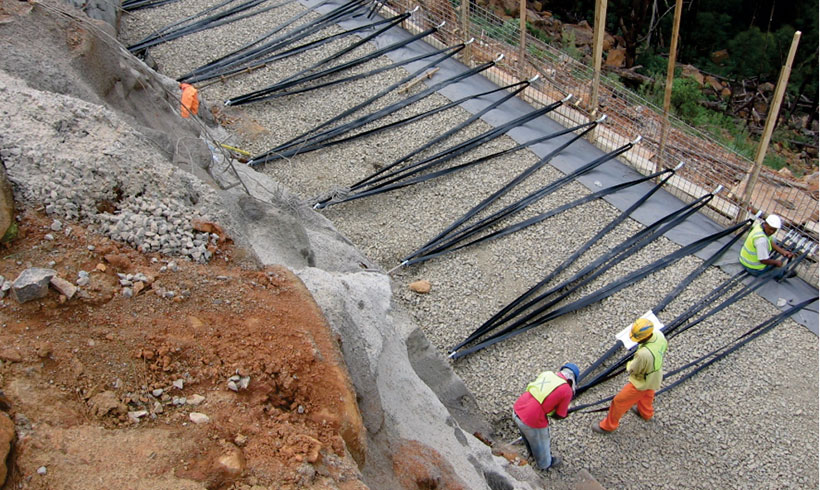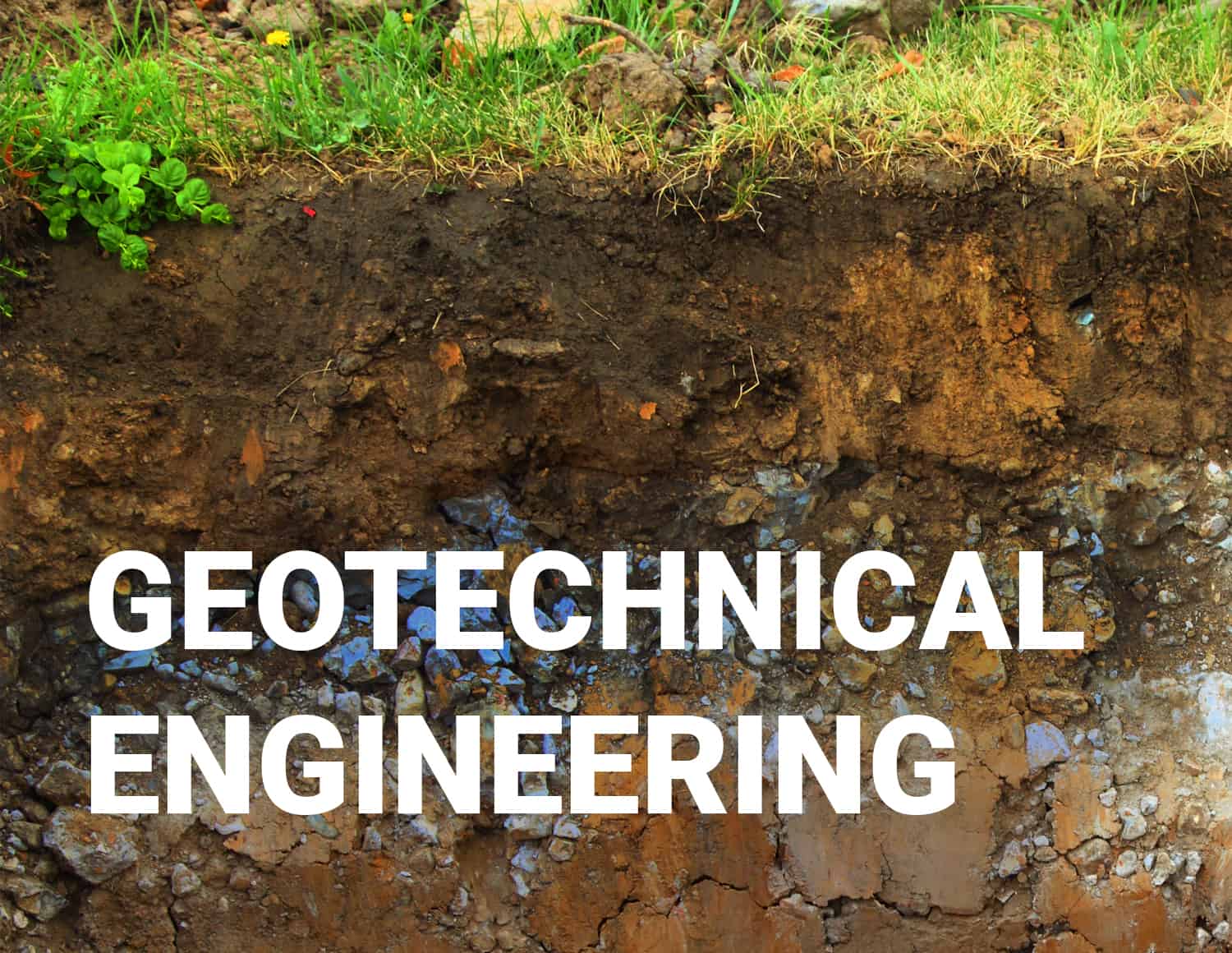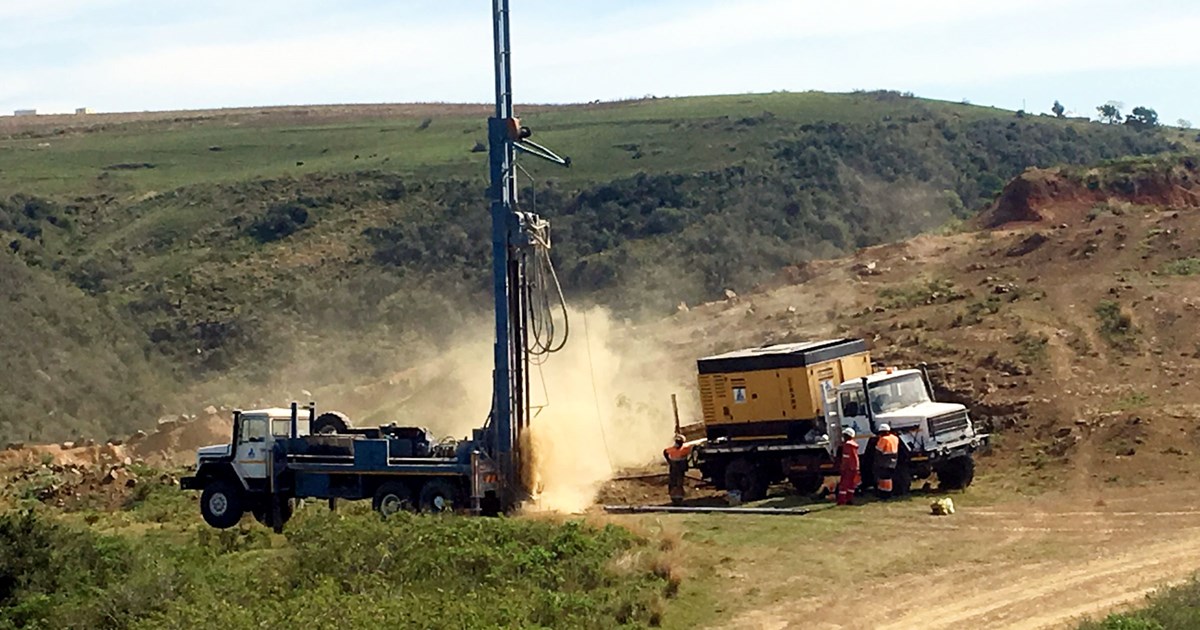Everything You Required to Understand About Geotechnical Engineering for Your Next Project
Everything You Required to Understand About Geotechnical Engineering for Your Next Project
Blog Article
The Importance of Geotechnical Design in Resolving Environmental Obstacles and Enhancing Construction Safety And Security
Geotechnical engineering offers as a foundation in the junction of ecological stewardship and building and construction security, supplying important insights right into the habits of dirt and rock under different problems. By applying critical website examinations and customized reduction procedures, geotechnical designers play an important duty in safeguarding both human lives and ecological stability.

Function of Geotechnical Design
Geotechnical engineering plays an essential function in the style and construction of facilities by resolving the actions of dirt and rock products under numerous conditions. This area of design is necessary for recognizing the interaction between frameworks and the ground, that includes determining the load-bearing ability of dirt, examining stability, and anticipating possible negotiation or failure.
Geotechnical designers are in charge of performing website examinations, which involve sampling and screening soil and rock to gather data on their physical and chemical homes. This info is essential for developing structures, keeping walls, and various other earth-retaining structures that make sure safety and durability. In addition, geotechnical design informs the choice of appropriate building and construction approaches and materials, consequently lessening risks linked with dirt behavior.
Moreover, the integration of geotechnical engineering principles into metropolitan planning and ecological management is critical for resolving challenges such as ground contamination and groundwater management. By understanding geotechnical aspects, designers can develop sustainable services that boost the strength of facilities against natural hazards, while also advertising ecological stewardship. Eventually, the function of geotechnical design is important for achieving risk-free, durable, and ecologically aware building and construction techniques.
Soil Erosion Reduction
Soil disintegration poses a considerable hazard to both ecological stability and facilities stability, influencing about 24 billion tons of abundant soil shed yearly worldwide. This phenomenon is intensified by elements such as logging, urbanization, and poor farming practices. Geotechnical design plays an essential role in developing efficient soil disintegration reduction techniques that secure both the setting and building projects.
One approach involves the implementation of erosion control approaches such as vegetation planting, which maintains dirt via origin systems. In addition, the building of preserving terraces and wall surfaces can efficiently lower surface runoff and safeguard prone locations from erosion. Appropriate water drainage design is additionally critical; it reduces water build-up and guides excess drainage far from essential structures.
Furthermore, geotechnical engineers use dirt stablizing strategies, such as the application of geotextiles and naturally degradable mats, to boost dirt communication and stop degradation - geotechnical specialist. Normal surveillance and evaluation of erosion-prone sites enable prompt interventions, making certain lasting sustainability. By incorporating these methods, geotechnical design not only minimizes the influences of soil disintegration however additionally adds to the strength of infrastructure against ecological difficulties, eventually promoting a safer and a lot more lasting built environment
Groundwater Security Strategies
Groundwater works as an important source for alcohol consumption water, agriculture, and commercial procedures, making its security essential for environmental sustainability and public health. Reliable groundwater security techniques are important in reducing contamination dangers and guaranteeing the durability of this resource.

Normal tracking of groundwater high quality is additionally vital, enabling early discovery of contamination sources and helping with prompt removal efforts. Using sophisticated modern technologies, such as geophysical studies and remote sensing, help in determining prospective risks to groundwater gets.
In addition, public education and stakeholder engagement are crucial, cultivating community assistance for groundwater protection campaigns. all about geotechnical engineering. By incorporating governing procedures, technological developments, and neighborhood participation, we can create a detailed structure that safeguards groundwater resources while promoting lasting development and building practices
Landslide Risk Monitoring
Landslides position significant hazards to both human security and infrastructure, making effective threat administration methods important. Geotechnical design plays an essential function in recognizing, examining, and mitigating landslide threats. A comprehensive understanding of slope stability, soil technicians, and hydrology is vital for developing efficient danger management strategies.
The primary step in landslide danger administration entails complete site examinations, which include geological mapping and dirt screening. These investigations aid engineers evaluate the capacity for landslides by identifying important variables such as incline angles, dirt structure, and water web content. Making use of advanced innovations such as remote picking up and geophysical surveys can improve the precision of these analyses.
As soon as threats are recognized, appropriate reduction procedures can be carried out. These may consist of design options such as keeping walls, water drainage systems, and incline stablizing techniques. Moreover, keeping an eye on systems should be developed to detect signs of ground motion and adjustments in water degrees, enabling for positive treatments.

Enhancing Building Safety And Security
Building websites typically present a myriad of threats that can threaten employee security and task stability. Geotechnical engineering plays an essential role in improving building safety by supplying essential insights into subsurface conditions. Through detailed soil and rock evaluation, geotechnical engineers can determine prospective risks, such as soil instability, groundwater issues, and seismic vulnerabilities, which might compromise the security of construction activities.
Applying geotechnical options, such as correct structure design and the usage of preserving frameworks, minimizes these dangers substantially. These services not just make sure the stability of the structures being built however likewise create a much safer working environment for construction employees.
Moreover, fostering a society of security through training and adherence to established safety and security protocols further enhances building and construction website safety and security. By incorporating geotechnical know-how into the preparation and implementation stages, building projects can achieve greater safety and security criteria, ultimately protecting employees and ensuring effective task conclusion.
Final Thought
Finally, geotechnical discover this engineering acts as an essential discipline in promoting and taking on environmental challenges building security. Through reliable soil disintegration mitigation, groundwater protection strategies, and landslide risk monitoring, geotechnical engineers add to the advancement of resilient facilities. The assimilation of these methods fosters a safer construction environment and boosts the sustainability of civil design jobs. Ultimately, the competence of geotechnical engineers is indispensable in guarding both natural deposits and human lives versus possible hazards.
Geotechnical design offers as a cornerstone in the intersection of environmental stewardship and construction safety, offering crucial understandings into the behavior of dirt and rock under different conditions. Geotechnical engineering educates the selection of proper building approaches and products, consequently reducing threats connected with dirt behavior.
Geotechnical engineering plays a crucial role in developing efficient dirt disintegration reduction approaches that safeguard both the atmosphere and building and construction projects.
Additionally, geotechnical engineers employ soil stablizing methods, such as the application of geotextiles and biodegradable floor coverings, to enhance dirt cohesion and protect against destruction. Through extensive dirt and rock analysis, geotechnical engineers can determine prospective risks, such as dirt instability, groundwater problems, and seismic vulnerabilities, which might endanger the safety of building and construction activities.
Report this page